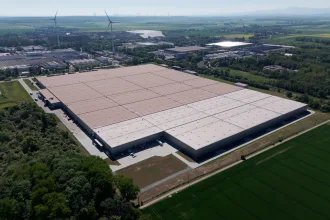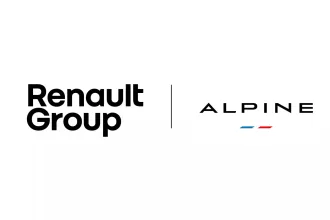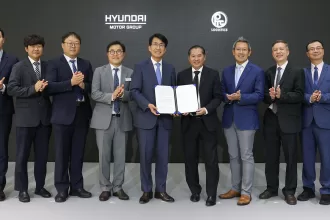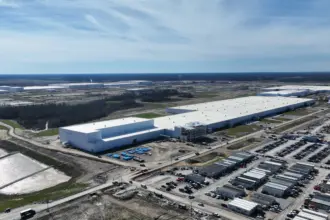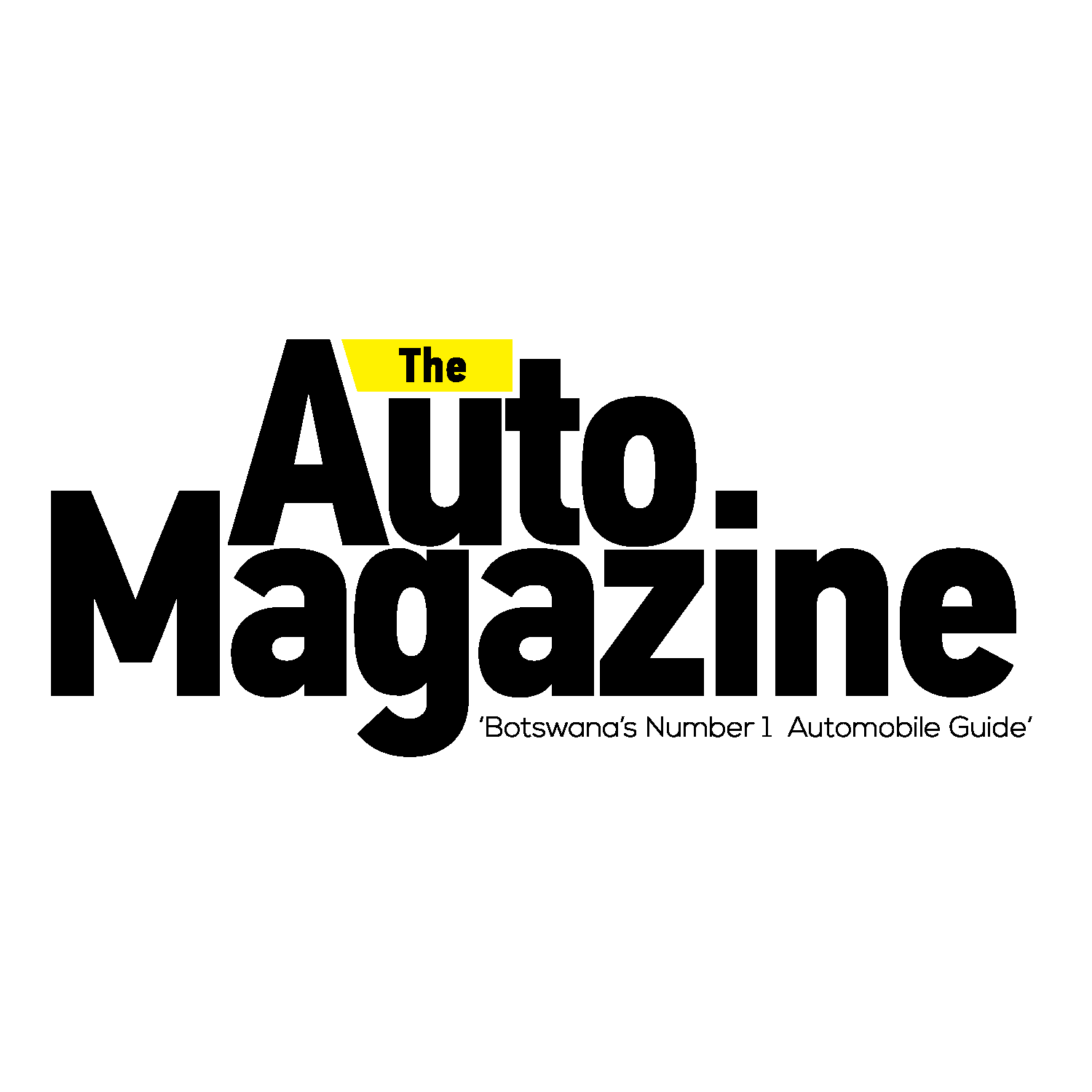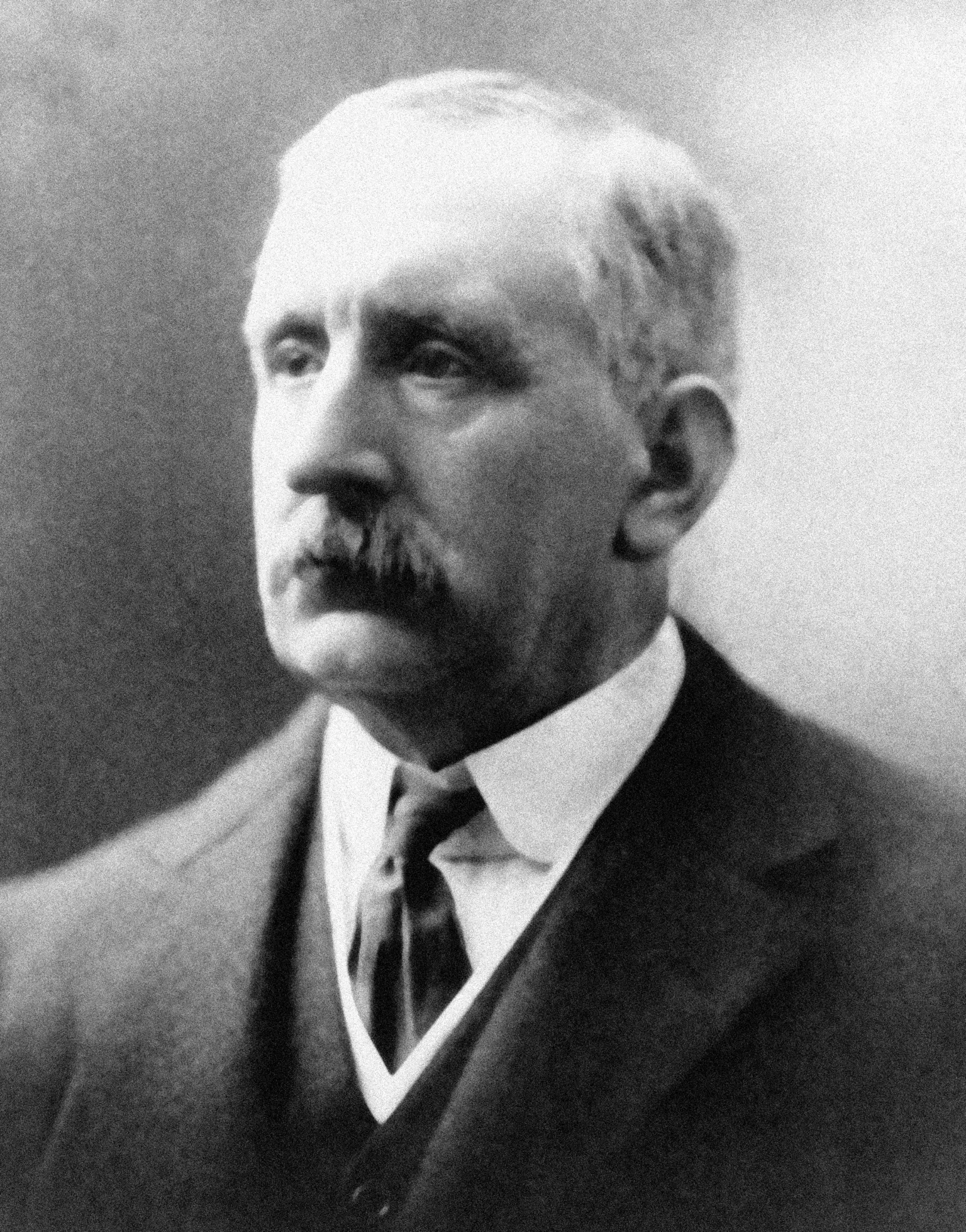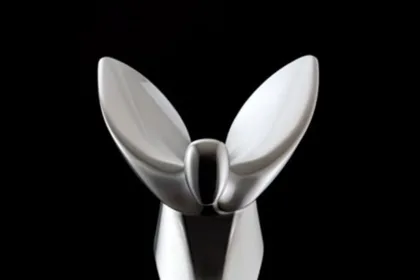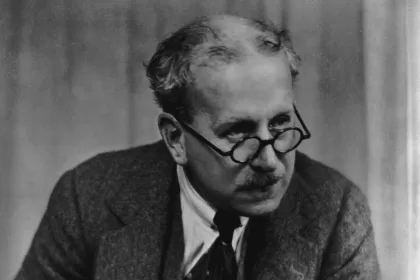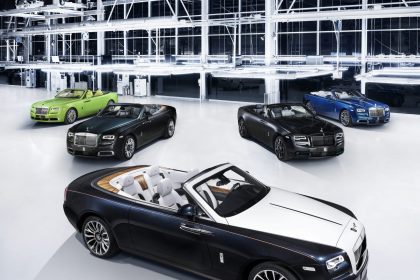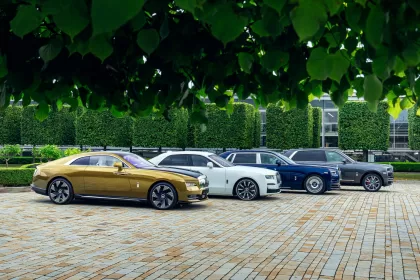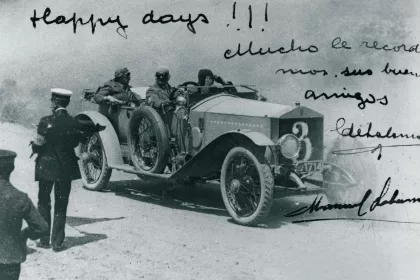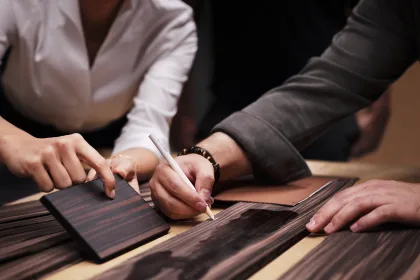Henry Edmunds was born on 20 March 1853, in Halifax, West Yorkshire. His father, an engineer and iron merchant, gave him an informal apprenticeship, from which the young Henry developed an enduring passion for the then-new world of electricity. Having befriended Joseph Swan (the inventor of the incandescent lightbulb) he became a salesman for the Swan Lamps company. Among his customers was the Royal Navy: in 1881, HMS Inflexible became the first British warship to be lit with electric bulbs. He was also friends with Thomas Edison (the inventor of almost everything else) and was present at both the first successful sound recording and telephone call.
In 1886, Edmunds became a partner in electrical cable-makers WT Glover & Co, based in Manchester. The company’s fortunes were transformed with the opening of the Manchester Ship Canal in 1894 – and, more specifically, the docks and the world’s first dedicated industrial estate, Trafford Park, alongside it. Glover’s won the contract to supply the cabling for the vast arc-lighting system, which was designed and manufactured by another Manchester company, F H Royce & Co, owned by one Henry Royce.
To complete the works, both Royce and Glover’s needed capital. Through a complex series of reorganisations, changes of name, mutual shareholdings and management overlaps between their respective firms, Henry Royce and Henry Edmunds became established business associates and close friends.
This year we celebrate the 120th anniversary of the first meeting between Henry Royce and Charles Rolls. But while it’s their two names that became world-famous, Rolls-Royce as we know it might never have existed without the intervention, influence and contributions of others. In this series, as well as the founders themselves, we remember those crucial actors, perhaps less recognised by posterity yet absolutely essential to the Rolls-Royce story – beginning, appropriately, with the man who arranged that first historic encounter.
Andrew Ball, Head of Corporate Relations and Heritage, Rolls-Royce Motor Cars
In 1899, Edmunds joined the Automobile Club of Great Britain & Ireland (later the Royal Automobile Club, or RAC). Edmunds was captivated by motoring and eagerly applied his agile, inventive mind to the infant technology’s myriad challenges and possibilities. The following year he entered the 1,000 Mile Trial from London to Edinburgh and back, organised by the Club’s imposing and ebullient secretary, Claude Johnson. Among his fellow entrants was The Hon Charles Stewart Rolls, and the three became firm friends.
By 1904, Edmunds had taken a business interest in the Parsons Non-skid Co Ltd, which made ‘chains’ that fitted to car tyres to prevent what was known as ‘slide-slipping’. They entered a competition, the Slide Slip Trials, at the end of April that year, but at the last minute found themselves without a suitable car. Edmunds asked Royce if they could use his first 10 H.P. car. Royce agreed and the car was hastily sent by train to London, where Edmunds drove it successfully in the 1,000-mile event. Charles Rolls also took part, but there is no record of his having anything to do with the Royce car.
Edmunds was enormously impressed by the 10 H.P. He also knew Rolls was desperately looking for a high-quality British-made car to sell in his thriving London dealership. He was determined to bring the two men together, and earned his place in history when, on 4 May 1904 at The Midland Hotel in Manchester, he announced: “Henry, may I introduce Charles Rolls”.
HENRY EDMUNDS: 20 MARCH 1853 – 18 NOVEMBER 1927
- A brief overview of the life and career of Henry Edmunds, born 20 March 1853
- Earned his place in history as the man who arranged the historic first meeting between his friends Henry Royce and Charles Rolls on 4 May 1904
- First in a series profiling the principal characters in the Rolls-Royce Motor Cars foundation story, each released to celebrate the subject’s birth date, as the marque celebrates its 120th anniversary
- Insights into the people, personalities and intertwined relationships that indelibly shaped the marque’s creation, development and lasting legacy
- Personal histories underline and celebrate the essential human dimension of ‘the best car in the world’, as exemplified in the modern era through Bespoke and Coachbuild commissions
